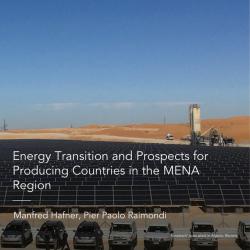Energy Transition and Prospects for Producing Countries in the MENA Region
The MENA region is well endowed with natural resources. For decades, governments have managed their reserves to preserve wealth potential for future generations as all countries (both resource-rich and resource-poor ones) have developed a rentier mentality. Today’s energy transition poses a threat to the status quo as the world seeks to end its thirst for fossil fuels. Hydrocarbon producing countries need to find new strategies and opportunities in order to adapt and adjust to the upcoming low-carbon future. This article examines the different starting points among hydrocarbon producing countries in the MENA region, highlights their different challenges and advantages, in order to discuss and assess the prospects of their energy transition strategies. It also takes into consideration the consequences of the energy crisis and the reconfiguration of energy flows which may affect the energy transition across the world’s regions. It applies a multidisciplinary approach evaluating sociopolitical (e.g. demography, governance), economic and (geo)political factors to analyze potential strategies (maximization of resources, decarbonization, economic diversification). Among others, the role of hydrogen, CCUS and electricity trade are considered.
-
Dati bibliografici
in IEMed Mediterranean Yearbook 2023




